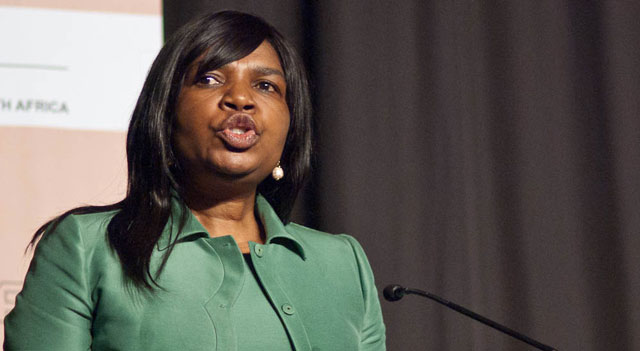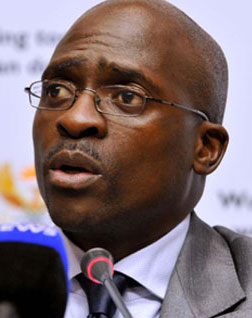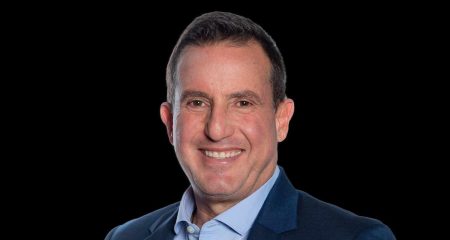
With a potential repositioning of some of the country’s most significant parastatals in the offing, a number of ministers could lose out as key entities are placed under the ever-extending wing of public enterprises minister Malusi Gigaba.
Not least of these is the embattled minister of communications, Dina Pule, who has been fighting allegations of corruption, and is under review by parliament’s ethics committee.
An announcement from minister in the presidency, Collins Chabane, on the long awaited outcome of the presidential review committee into state-owned enterprises is expected to be made next week.
The Mail & Guardian reliably understands that the review proposes a dramatic repositioning of some of the country’s major commercial state-owned enterprises. Among those potentially destined for Gigaba’s stable are state petroleum company PetroSA, broadcast signal distributor Sentech, Telkom and the South African Post Office.
While Gigaba is viewed as a capable, if ambitious, politician, analysts have questioned what such an overhaul to the parastatal landscape would achieve. The public enterprises department is already custodian of major infrastructure-related and commercial enterprises such as Eskom, Transnet, SAA, arms firm Denel and Broadband Infraco. All these entities are viewed as strategic to South Africa’s developmental agenda and form part of government’s R4-trillion infrastructure roll-out plans. Following Chabane’s expected announcement on the report, it is understood that President Jacob Zuma may seek to establish an interministerial state-owned-enterprises reform committee to oversee the process.
Among the ministers that could potentially lose oversight of significant institutions, beleaguered Pule would be hardest hit. The department of communications oversees the Post Office and Sentech, and is the shareholder department where government’s 40% stake of Telkom resides. Telkom listed on the JSE in 2011, but the government and the Public Investment Corp are its two largest shareholders.
Malusi Gigaba’s spokesperson, Mayihlome Tshwete, refused to comment on the matter, however, saying only that the review committee’s report was with cabinet and a statement would be made once this process was complete.
The presidential review commission was constituted in 2010 under current police commissioner Riah Phiyega. It was tasked with strengthening government oversight of parastatals and aligning them to the state’s “developmental agenda”.
It examined all state-owned enterprises, government agencies, utilities, as well as companies in which the state had a significant shareholding and it covered national, provincial and local government.

There has been discussion in government corridors for some time about the need to streamline the work of parastatals, provide clearer governance structures for parastatals, as well as clarify the responsibility of shareholder ministries, such as the department of public enterprises and the ministries that govern the policy under which state-owned enterprises must operate.
Many of the country’s major parastatal’s have a chequered past, battling to sustain credible leadership or financial stability.
PetroSA has most recently been rocked by scandal, with the M&G reporting that as much as R200m was allegedly misspent and about a further R800m placed at unnecessary risk. The company is housed under the Central Energy Fund, which reports to energy minister Dipuo Peters. Spokesperson Thandiwe Maimane said she could not comment, however, as the energy department had not been made aware of any cabinet decision relating to the reform of parastatals.
Telkom’s CEO, Nombulelo Moholi, resigned late last year and the company has experienced a hefty decline in its share price in recent months.
Gigaba’s own state-owned enterprises have themselves not escaped controversy. SAA was plagued by a spate of resignations last year and reported large financial losses.
Total disaster
Eskom, meanwhile, is battling to shore up electricity supply to the country and fighting hard to keep the construction of its two new power plants, Medupi and Kusile, on track.
If any such shake-up was indeed coming, it raised the question of what it would achieve, said political analyst Steven Friedman.
The state had attempted greater centralisation before, in the form of the office in the presidency under then minister Jay Naidoo, responsible for government’s reconstruction and development programme. This was a “total disaster”, said Friedman.
While it was legitimate for the government to give direction to parastatals, a distinction must be drawn between this and micro-managing their operations, he said.
Pule’s spokesperson, Siya Qoza, said if such a discussion was taking place it was being held at cabinet level. He referred questions to the presidency.
The communications department had shown a significant lack of leadership when it came to Telkom, said telecoms regulatory specialist Dominic Cull of Ellipsis Regulatory Solutions. Folding government’s interest into another department such as public enterprises “could be no worse” than keeping it in the communications department, Cull said. — (c) 2013 Mail & Guardian
- Visit the Mail & Guardian Online




